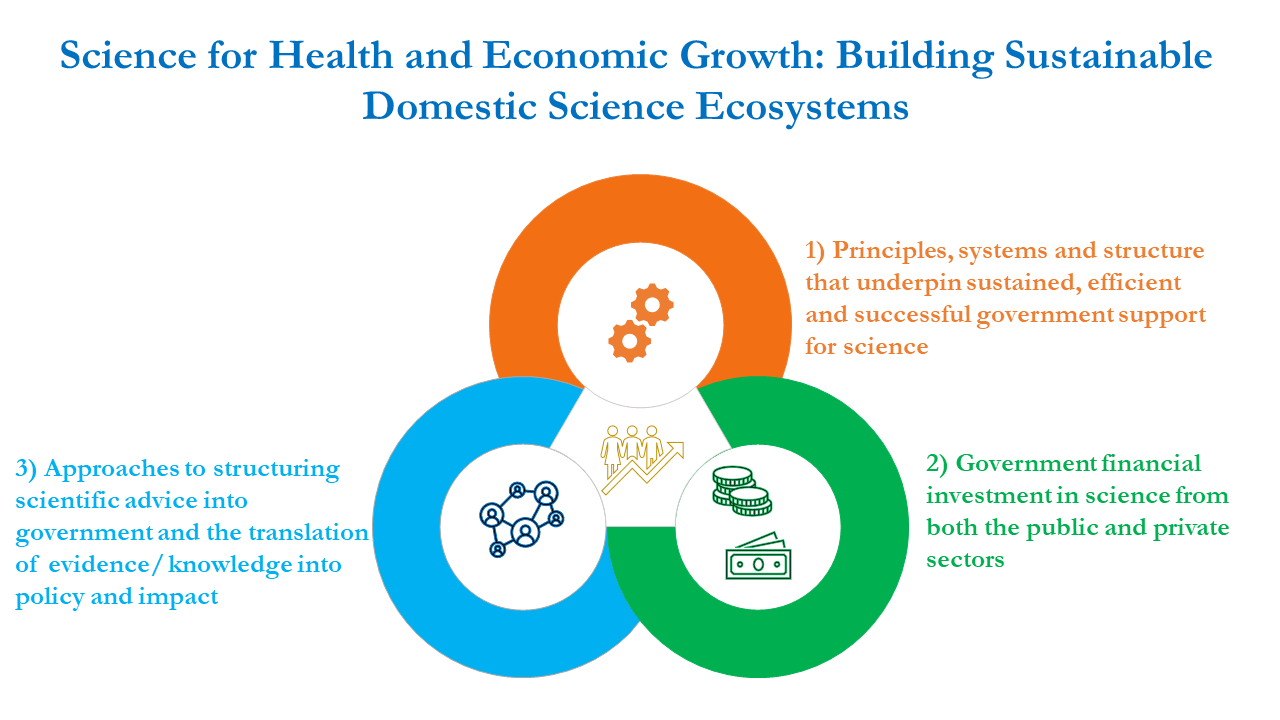Side Meetings
SMB308
Science for Health and Economic Growth: Building Sustainable Domestic Science Ecosystems
29
Jan
- WHO

Science has been central to the improvements in clinical and public health witnessed over the last few decades and is increasingly important to a country`s economic growth, economic resilience and national security.
Scientific advancements not only contribute to healthier populations but also play a pivotal role in driving economic growth, as they foster innovation, create high-value jobs, and boost productivity, offering a promising future. Increased economic growth and resilience provide the basis for larger spending on health and science. In a virtuous circle, advancing science, improving public health, and increasing economic growth reinforce each other.
Building such a virtuous circle requires strategic decisions, investments, and long-term commitments by the government. Science ecosystems encompass various elements, ranging from a strong education system to research infrastructure, career support, and partnerships with the private sector, among others. The structure and focus of a science ecosystem are country-specific, often complex, and need to constantly evolve.
Investing in science means financing is secured and sustained over the long run. This can be best guaranteed using domestic resources instead of depending on external official development assistance with the power imbalances and inequities that tend to follow. Governments should ringfence specific revenues for investments in science. At the same time, incentives should be offered to crowd in private sector investment in science and R&D.
In order for scientific advances to contribute to enhancing public health, science needs to be translated into better policies as well as equitable access to new health technologies. Ensuring the best available science advice in government is therefore critical. It also facilitates local innovation and the transfer of technology, making everyone part of a fair and inclusive system and ensuring no one is left behind.
Under the leadership of the WHO Director General and the Chief Scientist, and in partnership with key scientific networks and stakeholders, WHO will work very closely with countries and partners interested in joining the initiative and aim to establish a “WHO Commission/Initiative on Science for Health and Economic Growth” in 2025/2026.
The side meeting will focus on this initiative and bring interested countries together to discuss and brainstorm on how science can play a crucial role in health and economic growth. Discussions will focus on the areas described below.
In this meeting, we will introduce the “Science for Health and Economic Growth“ initiative to strengthen national science, research, and innovation ecosystems. This meeting will focus on what models and options exist for how best to use domestic resources on science and its return on investment. It will address two overarching questions:
- How countries currently organise and how they might, in the future, use their domestic resources to support and sustain their science ecosystems for maximum value and impact?
- How countries currently do and how they might organise their scientific advice into government?

